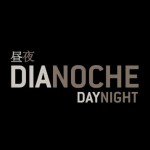Blog del Instituto Cervantes de Dublín
Torre Martello
Mesa redonda | Round table discussion: Palabras e imágenes, cine y literatura. (Words and images, cinema and literature)
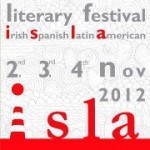 Comenzamos el último día del Festival Literario ISLA con una discusión literaria que tendrá lugar a las 11:00 en el Café Literario.
Comenzamos el último día del Festival Literario ISLA con una discusión literaria que tendrá lugar a las 11:00 en el Café Literario.
Cine y literatura, novela gráfica o cómo surgen historias narradas en imágenes y/o palabras serán algunos temas de los invitados Javier Mariscal (diseñador), Fernando Trueba (director de cine) y Mark O’Halloran (actor y guionista). Modera: Ciaran Carty.
Javier Mariscal (Valencia, 1950) es ante todo un creador de imágenes que desarrolla su trabajo en todo tipo de soportes y disciplinas. Junto con el equipo del Estudio Mariscal, que fundó en 1989, ha realizado numerosos proyectos internacionales (H&M, America’s Cup, Camper, etc.), además de la exposición sobre su trabajo Mariscal Drawing Life en el Design Museum de Londres y dos publicaciones monográficas: Mariscal Drawing Life y Sketches. En 2010, ha dirigido junto a Fernando Trueba, Chico y Rita y se ha publicado el cómic Chico & Rita. En 2011 ha publicado también el libro ilustrado Los Garriris.Chico & Rita se ha traducido al inglés en 2011, publicándose también en Francia y Países Bajos.
Mark O’Halloran (Ennis, Condado de Clare) es un dramaturgo, actor y guionista irlandés. Escribió el guión de dos películas muy aplaudidas en la escena cinematográfica: En la primera, Adam and Paul(2004) también asumió unos de los papeles principales, ganando con su trabajo el premio del Festival Internacional de Cine de Gijón al mejor actor (2005) y el Evening Standard British Film Award al mejor guión (2006). Su segunda película, Garage, se estrenó en el Festival de Cine de Cannes en el 2007 y ganó el premio CICAE a la mejor película, así como el Irish Film and Television Award al mejor guión de película (2008), entre muchos otros. También escribió el guión para la serie Prosperity, del canal RTE en 2007, por el cual ganó el Irish Film and Television Award al mejor guión de televisión (2008). Su última obra de teatro Trade se estrenó en el Festival de Teatro del Ulster Bank Dublin en septiembre de 2011.
Fernando Trueba (Madrid, España, 1955) es guionista, editor y director de cine. Entre 1974 y 1979 trabajó como crítico de cine para El País y en 1980 fundó la revista mensual de cine Casablanca, la cual dirigió y editó durante los primeros dos años. En 1992, su película Belle Époque, obtuvo 9 premios Goya y, en 1993, obtiene el Oscar a la mejor película de habla no inglesa. En 1997 publica su libroDiccionario del cine y es editor del Diccionario del Jazz Latino (1998). Recientemente ha llevado al cine, junto al diseñador Javier Mariscal, la película de animación Chico y Rita, que ha recibido el Goya a la mejor película de animación y que ha sido nominada al Óscar como Mejor Película de animación.
To begin the last day of ISLA Literary Festival, we start with a literary discussion that will take place at 11:00 in Café Literario.
Cinema and literature, graphic novel or how stories told in images or words come to life will be some of the topics dealt with by guests Javier Mariscal (designer), Fernando Trueba (cinema director) and Mark O’Halloran (actor, script writer). Chaired by Ciaran Carty.
Javier Mariscal (Valencia, 1950) is, first and foremost, an image creator who develops his work using all kinds of supports and disciplines. Together with the team of Estudio Mariscal, which he founded in 1989, in recent years, and among many other things, he has done several interior design and graphics (H&M, America’s Cup, Camper, etc), the exhibition of his work Mariscal Drawing Life in the Design Museum of London and two monographic publications: Mariscal Drawing Life and Sketches. In 2010, he premiered the full-length cartoon film Chico & Rita which he jointly directed with Fernando Trueba and produced the comic Chico & Rita. In 2011 he published the illustrated book Los Garriris. Chico & Rita has been translated into English in 2011 and has also been published in France and The Netherlands.
Mark O’Halloran (Ennis, Co. Clare) is an Irish playwright, actor and screen writer. He wrote the script for two critically lauded Irish films: On the first one, Adam and Paul (2004), he also took one of the leading roles, winning the Gijón International Film Festival Award for Best Actor (2005) and the Evening Standard British Film Award for Best Screenplay (2006). His second film, Garage, premièred at the Cannes Film Festival in 2007 and won the CICAE award for Best Film and the Irish Film and Television Award for Best Script for Film (2008), among many others. He also wrote the script for the four-part television series Prosperity on RTE in 2007, for which he won the Irish Film and Television Award for Best Script for Television (2008). His latest play Tradepremièred at the Ulster Bank Dublin Theatre Festival in September 2011.
Fernando Trueba (Madrid, Spain, 1955) is a scriptwriter, editor and film director. Between 1974 and 1979 he worked as a film critic for Spain’s national daily newspaper El Pais and in 1980 he founded the monthly film magazine Casablanca, which he directed and edited during its first two years. In 1992, his film Belle Époque received 9 Goya Awards and, in 1993, it was awarded the Oscar for Best Foreign Language film. In 1997 he published the book Diccionario del cine and is the editor of theDiccionario Del Jazz Latino. He has recently broughtChico & Rita to the big screen working with designer Javier Mariscal. This film was awarded the Goya for Best Animated Film, as well as an Academy Award nomination for Best Animated Film.
Cine | Film Screening: Tango
Today is the last session of the Argentinian Film Series with the screening of the critically aclaimed film Tango by Carlos Saura. You can enjoy it at 6pm at Café Literario.
Set in Buenos Aires, the film tells the story of director Mario Suarez’s quest to make the ultimate tango film. Lonely after his wife has left him, Mario must find the themes that will hold the film together, while simultaneously permitting his musicians and dancers the freedom of expression that is necessary to satisfy the tango-hungry Argentine audience. Things become complicated when Mario falls in love with Elena, a beautiful and talented young dancer who is the girlfriend of the powerful and dangerous Angelo Larroca, an investor in the picture.
Hoy leemos con | Today we are reading with: Harry Clifton, Omar Pérez, Lorna Shaughnessy y Diego Valverde Villena
La segunda actividad del Festival ISLA es un estupendo recital poético que podrás disfrutar el 2 de noviembre a partir de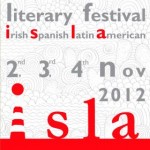 las 17:15 en el Café Literario.
las 17:15 en el Café Literario.
Estos cuatro poetas han seleccionado algunos de sus mejores poemas a los que pondrán su voz en este recital en versión original. Presenta: Bill Richardson (NUI Galway).
Harry Clifton (Dublín, 1952) ha vivido una parte importante de su vida fuera de Irlanda (Nigueria, Extremo Oriente, Italia…) De su estancia en Italia publicó sus memorias en prosa On the Spine of Italy. En 2004 regresó a Irlanda. Entre sus colecciones de poemas se encuentran The Desert Route: Selected Poems 1973-1988 y Secular Eden: Paris Notebooks 1994-2004. También es autor de una colección de ficción, Berkeley’s Telephone and Other Fictions(2000). Clifton fue nombrado Ireland Chair of Poetry en el 2010. Ha recibido también el premio de poesía Patrick Kavanagh y dos premios Arts Council Bursaries de literatura. Sus obras han sido traducidas a varias lenguas europeas.
Lorna Shaughnessy (Belfast, Irlanda del Norte, 1961) es poeta, traductora y profesora de Lengua Española en la Universidad Nacional de Irlanda, Galway. Ha publicado dos libros de poemas, Torching the Brown River (2009) y Witness Trees (2011) y dos traducciones de poesía contemporánea mexicana,Mother Tongue: Selected Poems by Pura López Colomé y If We Have Lost our Oldest Tales, de María Baranda (2006). Su traducción de The Disappearance of Snow de Manuel Rivas fue publicada en 2012.
Omar Pérez (La Habana, Cuba, 1964) es poeta, ensayista y traductor, además de periodista, crítico de teatro y cine, editor y locutor de radio. Su última publicación es la colección de ensayos El corazón mediterráneo (2011). Como poeta ha publicado Algo de lo sagrado (1996), ¿Oíste hablar del gato de pelea? (1999), Canciones y Letanías (2002) y Lingua Franca (2009). En inglés ha publicado Something of the Sacred (2007), traducción de Algo de lo sagrado, a cargo de Kristin Dykstra y Did you hear about the fighting cat? (2010).
Diego Valverde Villena (Lima, Perú, 1967). Poeta español y peruano, de ascendencia boliviana. En 2011 publicó su libro de poemas Un segundo de vacilación. Ha traducido obras de Conan Doyle, Kipling, John Donne, Ezra Pound, Valery Larbaud, Nuno Júdice, E.T.A. Hoffmann y Paul Celan, entre otros. Sus poemas aparecen en numerosas antologías y han sido traducidos a varios idiomas, entre ellos al irlandés. Entre sus principales obras de poesía se encuentran: El difícil ejercicio del olvido(1997), No olvides mi rostro (2001) y El espejo que lleva mi nombre escrito (2006).
The second event of the ISLA Festival will be an outstanding poetry reading on November 2nd at 5.15pm at Café Literario.
These four poets will be reading a selection of some of their best poems in their original language in this poetry reading. Introduced by Bill Richardson (NUI Galway)
Harry Clifton (Dublin, 1952) has spent great part of his life outside of Ireland (Nigeria, Far East, Italy…). He documented the time spent in Italy in his prose memoir On the Spine of Italy. In 2004, he returned to Ireland. His collections of poems include The Desert Route: Selected Poems 1973-1988 and Secular Eden: Paris Notebooks 1994-2004. He is also the author of a collection of fiction, Berkeley’s Telephone and Other Fictions (2000). He was appointed as the Ireland Chair of Poetry in 2010. His other honors include the Patrick Kavanagh Poetry Award and two Arts Council Bursaries in Literature. His work has been translated into several European languages.
Omar Pérez (Havana, Cuba, 1964) is a poet, essayist and translator, as well as a journalist, theatre and film critic, editor and radio announcer. His last publication was the collection of essays El corazón mediterráneo (2011). As a poet he publishedAlgo de lo sagrado (1996), ¿Oíste hablar del gato de pelea? (1999), Canciones y Letanías (2002) andLingua Franca (2009). In English he publishedSomething of the Sacred (2007), the translation ofAlgo de lo Sagrado by Kristin Dykstra, and Did You Hear About The Fighting Cat? (2010).
Lorna Shaughnessy (Belfast, Northern Ireland, 1961) is a poet, translator and lecturer in Spanish in the National University of Ireland, Galway. She has published two collections of poems, Torching the Brown River (2009) and Witness Trees (2011) and two translations of contemporary Mexican poetry,Mother Tongue: Selected Poems by Pura López Colomé and If We Have Lost our Oldest Tales by María Baranda, (2006). Her translation of Manuel Rivas’ The Disappearance of Snow, was published in 2012.
Diego Valverde Villena (Lima, Peru, 1967) is a Spanish and Peruvian poet of Bolivian descent. In 2011 he published his book of poems Un segundo de vacilación. He has translated, among others, works of Conan Doyle, Joseph Rudyard Kipling, John Donne, Ezra Pound, Valery Larbaud, Nuno Júdice, E.T.A. Hoffmann and Paul Celan. His poems appear in many compilations and have been translated into several languages, including Irish. His most famous works in poetry are El difícil ejercicio del olvido (1997), No olvides mi rostro (2001) and El espejo que lleva mi nombre escrito (2006).
Mesa redonda: Literatura fantástica y poesía. De Cortázar a Beckett, pasando por Borges | Round Table: Poetry and fantastic literature. From Cortázar to Beckett, including Borges along the way
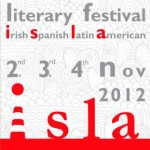 Abrimos el festival ISLA con esta mesa redonda en la que los invitados Elia Barceló, Harry Clifton y María Negroni hablarán sobre literatura fantástica y poesía, sus influencias y mucho más con Jean-Philippe Imbert (DCU). No te puedes perder esta cita el próximo día 2 de noviembre a las 16:00 horas en el Café Literario.
Abrimos el festival ISLA con esta mesa redonda en la que los invitados Elia Barceló, Harry Clifton y María Negroni hablarán sobre literatura fantástica y poesía, sus influencias y mucho más con Jean-Philippe Imbert (DCU). No te puedes perder esta cita el próximo día 2 de noviembre a las 16:00 horas en el Café Literario.
Elia Barceló (Alicante, España, 1957) ha publicado novelas policíacas, históricas, de ciencia ficción y género fantástico para adultos, así como novelas para jóvenes y ensayos. Ha recibido el Premio Gabriel 2007, galardón reservado para las más importantes personalidades del género fantástico en España. Ha sido traducida al francés, italiano, alemán, catalán, inglés, griego, húngaro, holandés, danés, noruego, sueco, croata, portugués, euskera, checo, ruso y esperanto. Sus novelas traducidas al inglés hasta la fecha son: Corazón de tango (2007), traducida al inglés como Heart of Tango (2010) y The Goldsmith’s Secret (2011), traducción de El secreto del orfebre (2003).
Harry Clifton (Dublín, 1952) ha vivido una parte importante de su vida fuera de Irlanda (Nigeria, Extremo Oriente, Italia…). De su estancia en Italia publicó sus memorias en prosa On the Spine of Italy. En 2004 regresó a Irlanda. Entre sus colecciones de poemas se encuentran The Desert Route: Selected Poems 1973-1988 y Secular Eden: Paris Notebooks 1994-2004. También es autor de una colección de ficción, Berkeley’s Telephone and Other Fictions(2000). Clifton fue nombrado Ireland Chair of Poetry en 2010. Ha recibido también el premio de poesía Patrick Kavanagh y dos premios Arts Council Bursaries de literatura. Sus obras han sido traducidas a varias lenguas europeas.
María Negroni (Rosario, Argentina, 1951) es poeta, ensayista y novelista. Como poeta, ha publicado, entre otros libros: Islandia, El viaje de la noche, Arte y Fuga, La Boca del Infierno y Cantar la nada. También ha publicado varios libros de ensayos y dos novelas. Ha traducido, entre otros, a Emily Dickinson, Louise Labé, Valentine Penrose, Georges Bataille, H.D., Charles Simic y Bernard Noël, y la antología de mujeres poetas norteamericanas La pasión del exilio(2007). Su libro Islandia recibió el premio del PEN American Center en Nueva York al mejor libro de poesía en traducción del año (2001) y Galería Fantástica recibió el Premio Internacional de Ensayo de Siglo XXI (México). Su obra ha sido traducida al inglés, francés, sueco e italiano.
The ISLA festival will kick off with this round table where guests Elia Barceló, Harry Clifton and María Negroni will discuss poetry and fantastic literature, its influences and much more with Jean-Philippe Imbert (DCU). This event will be held the 2nd of November at 4pm at our Café Literario.
Elia Barceló (Alicante, Spain, 1957) has published crime, historical, science fiction and fantastic novels for adults, as well as young adult books and essays. In 2007 she received the Gabriel Award, a prize for the most important personalities in the fantastic genre in Spain. Her work has been translated into French, Italian, German, Catalan, English, Greek, Hungarian, Dutch, Danish, Norwegian, Swedish, Croatian, Portuguese, Basque, Czech, Russian and Esperanto. Her novels translated into English are: Corazón de tango (2007), translated into English under the nameHeart of Tango (2010) and The Goldsmith’s Secret(2011), a translation of El secreto del orfebre (2003).
Harry Clifton (Dublin, 1952) has spent great part of his life outside of Ireland (Nigeria, Far East, Italy…). He documented the time spent in Italy in his prose memoir On the Spine of Italy. In 2004, he returned to Ireland. His collections of poems include The Desert Route: Selected Poems 1973-1988 and Secular Eden: Paris Notebooks 1994-2004. He is also the author of a collection of fiction, Berkeley’s Telephone and Other Fictions (2000). He was appointed as the Ireland Chair of Poetry in 2010. His other honors include the Patrick Kavanagh Poetry Award and two Arts Council Bursaries in Literature. His work has been translated into several European languages.
María Negroni (Rosario, Argentina, 1951) is a poet, essayist and novelist. She has published numerous poetry books: Islandia, El viaje de la noche, Arte y Fuga, La Boca del infierno and Cantar la nada, to mention just a few. She is also author of several essays and two novels. She has translated several poets: Emily Dickinson, Louise Labé, Valentine Penrose, Georges Bataille, H.D., Charles Simic and Bernard Noël, as well as the anthology of 20th century North American women poets La Pasión del Exilio (2007). Her book Islandia received the 2001 PEN American Center Award for best book of poetry in translation. She was awarded the 21st Century International Essay Prize (Mexico) for her bookGalería Fantástica. Her work has been translated into English, French, Swedish and Italian.
Recital literario: Poesía útil con Ángel Guinda | Poetry reading: Useful Poetry with Ángel Guinda
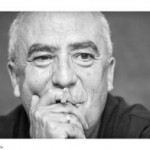 El Instituto Cervantes de Dublín y la editorial Olifante tienen el placer de presentarles hoy a las 18:00 en el Café Literario este recital poético del autor español Ángel Guinda, quién mostrará una proyección de videoclips sobre su poética (Arquitextura) y Manifiestos (Poesía útil, Antimanifiesto, Manifiesto No) además de videopoemas. A los audiovisuales les seguirá una lectura comentada por el propio autor y un coloquio. Presenta y conversa con el autor, Jennifer Wood (NUI Maynooth)
El Instituto Cervantes de Dublín y la editorial Olifante tienen el placer de presentarles hoy a las 18:00 en el Café Literario este recital poético del autor español Ángel Guinda, quién mostrará una proyección de videoclips sobre su poética (Arquitextura) y Manifiestos (Poesía útil, Antimanifiesto, Manifiesto No) además de videopoemas. A los audiovisuales les seguirá una lectura comentada por el propio autor y un coloquio. Presenta y conversa con el autor, Jennifer Wood (NUI Maynooth)
Ángel Guinda (Zaragoza, 26 de agosto de 1948) es un escritor español conocido sobre todo por su poesía, aunque su obra abarca géneros muy variados: artículos en periódicos y revistas, ensayos y traducciones. Fundó la Colección Puyal de libros de poesía en 1977 y la revista Malvís en 1988. Ha publicado más de una veintena de libros y es coautor de la letra del Himno de Aragón. En 2010 fue galardonado con el Premio de las Letras Aragonesas.
Ángel Guinda dará una charla en la Universidad de Maynooth el martes 23 de octubre a las 17:00 h.
Instituto Cervantes Dublin and Olifante Publishing House are delighted to present this poetry recital today at 6pm at Café Literario by Spanish author Ángel Guinda. He will screen a series of video clips about his poetry (“Arquitextura”) and Manifestos (“Poesía útil”, “Antimanifiesto”, “Manifiesto No”) as well as video poems. The videos will be followed by a recital with comments by the author and a Q&A session. Introuced by Jennifer Wood (NUI Maytnooth)
Ángel Guinda (Zaragoza, August 26th, 1948) is a Spanish writer known mainly for his poetry, although his work extends to various genres: newspaper and magazine articles, essays and translations. He founded the Colección Puyal of poetry books in 1977 and the Malvís magazine in 1988. He has published over twenty books and is the co-author of the lyrics to the Aragón anthem. In 2010 he received the award Premio de Letras Aragonesas.
Ángel Guinda will offer a lecture at the University of Maynooth in October 23rd, at 5 pm.
Cine / Film screening: Yo bailé con Don Porfirio
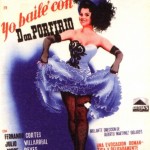 Finalizamos hoy el ciclo “Grandes figuras del cine mexicano” con la proyección de “Yo bailé con Don Porfirio” en el Café Literario a las seis.
Finalizamos hoy el ciclo “Grandes figuras del cine mexicano” con la proyección de “Yo bailé con Don Porfirio” en el Café Literario a las seis.
México a principios de siglo. Don Severo, su esposa y su hija Rosa llegan a la capital donde él tiene otra hija, Violeta, quien aspira a ser vedette. Ambas son idénticas y ese parecido provocará varios equívocos. Don Severo se encuentra con Porfirio, su amigo astrólogo, quien le presenta al coronel don Evaristo, el cual va a dar una fiesta para don Porfirio. El teatro Principal, la sociedad afrancesada y los duelos dan vida a esta comedia nostálgica.
Cine / Film screening: Ahí está el detalle
La comedia llega hoy al Café Literario con “Ahí está el detalle”. La película se proyectará a las seis dentro del ciclo “Grandes figuras del cine mexicano”.
En la película el novio de la sirvienta de un rico empresario tiene que entrar en la casa para matar un perro rabioso. La confusión entre el perro Bobby y un gángster del mismo nombre desencadena una serie de enredos entre un celoso marido, su nerviosa esposa, una pícara criada, una esposa abandonada con ocho hijos y el singular Cantinflas.
Comedy is coming today to our Cafe Literario with the film “Ahí está el detalle”. The screening is at 6pm as part of the film series “Great Figures of Mexican Cinema”. Cantinflas is the boyfriend of the servant of a rich industrial man, gets into the house in order to kill a mad dog. Suddenly this man appears so the servant tells him that Cantinflas is his wife’s brother, who had been lost for years. The rich man then remembers that his father in law’s testament could only be paid when all brothers get together, so treats Cantinflas, a real bum, as a king.
Exposición | Exhibition: Geografía postal. Las postales de las familias García Lorca y De los Ríos
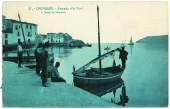 Esta tarde a las seis inauguramos una nueva exposición: Geografía postal. La postales de las familias García Lorca y De los Ríos. Después tendremos el recital “Homenaje a Federico García Lorca” con la soprano Judith Mok y la pianista Dearbhla Collins.
Esta tarde a las seis inauguramos una nueva exposición: Geografía postal. La postales de las familias García Lorca y De los Ríos. Después tendremos el recital “Homenaje a Federico García Lorca” con la soprano Judith Mok y la pianista Dearbhla Collins.
¿Quién no ha escrito alguna vez una tarjeta postal? Ahora ya casi nadie envía o recibe postales. Todo esto ha sido sustituido por el correo electrónico o los mensajes de móviles que poco a poco han ido dejando en el olvido a las postales. Sin embargo, a comienzos del siglo pasado, las postales se utilizaban para enviar mensajes cortos a amigos o familiares. Este es el caso de Federico García Lorca y su familia.
En la primera mitad del siglo XX estas dos familias (García Lorca y De los Ríos), se enviaron postales casi todos los días, creando así una amplísima colección que el Instituto Cervantes te invita a conocer. Martin Parr, fotógrafo y especialista en postales, ha seleccionado las más importantes para esta exposición, que nos ayudará a adentrarnos en la faceta más íntima de la vida del poeta.
La exposición estará abierta del 20/09/2012 al 17/11/2012.
El horario de visita es: Lun.- jue.: 14-19 h. Sáb: 10-14 h. Cerrado vie., dom. y festivos
We open a new exhibition today at 6pm: “Postal Geography, García Lorca and De los Ríos families´postcards”. It will be followed by the recital “Tribute to Federico García Lorca” by soprano Judith Mok and pianist Dearbhla Collins.
Who hasn´t written a postcard? People hardly send or receive postcards nowadays. Emails and text messages have substituted them and have made them fall into oblivion. At the beginning of the previous century postcards were used to send brief messages to friends or family. In this case, the Spanish poet Federico García Lorca and his family.
In the first half of the 20th Century these two families, García Lorca and De los Ríos sent each other postcards almost daily. Martin Parr, photographer and a specialist in postcards has selected the most important ones for this exhibition. This display will bring us closer to the most intimate side of the poet´s life.
The exhibition will open fro the 20/09/2012 to 17/11/2012.
Opening hours: Mon-Thur: 2-7pm. Sat: 10am-2pm. Closed on Fridays, Saturdays and Bank Holidays.
Film screening | Cine: Modisto de señoras
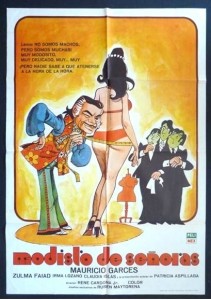 Una comedia ligera llega hoy a nuestro Café Literario a las 18:00. En Modisto de señoras, el sastre D’Maurice simula ser afeminado para encajar en el mundo de la alta costura y tomar ventaja de dicha apariencia para conquistar a todas sus clientas; burlándose así de todos los esposos de las mismas quienes confiadamente creen dejar a sus mujeres en buenas manos. La película forma parte del ciclo Grandes figuras del cine mexicano.
Una comedia ligera llega hoy a nuestro Café Literario a las 18:00. En Modisto de señoras, el sastre D’Maurice simula ser afeminado para encajar en el mundo de la alta costura y tomar ventaja de dicha apariencia para conquistar a todas sus clientas; burlándose así de todos los esposos de las mismas quienes confiadamente creen dejar a sus mujeres en buenas manos. La película forma parte del ciclo Grandes figuras del cine mexicano.
A funny film comes today to the Café Literario today at 6pm. In Modisto de señoras, a the susccessful fashion designer D’Maurice seduces married women while he pretends to be gay in order to avoid arousing suspicion among his clientele’s husbands. The film is part of the Great figures of Mexican Cinema series.
Cine / Film screening: María Candelaria
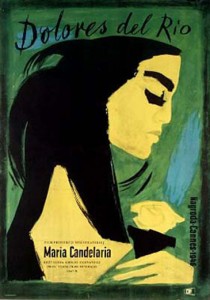 La segunda sesión del ciclo Grandes figuras del cine mexicano nos trae la película María Candelaria. La proyección es hoy, como siempre en el Café Literario a las seis.
La segunda sesión del ciclo Grandes figuras del cine mexicano nos trae la película María Candelaria. La proyección es hoy, como siempre en el Café Literario a las seis.
Una reportera le pregunta a un viejo artista sobre el retrato de una hermosa india desnuda del que nunca ha querido hablar. El artista le narra la historia de María Candelaria una joven indígena de Xochimilco que vivió a principios del siglo XX. La joven es rechazada por su propia gente debido a que es hija de una prostituta. El único que se atreve a estar con ella es Lorenzo Rafael un joven indígena que le profesa una profunda devoción. Pero el amor de los dos está a merced de los caprichosos juegos del destino.
The second session of the cinema series Great Figures of Mexican Cinema comes with the film María Candelaria. The screening is today at 6pm at Cafe Literario.
A young journalist presses an old artist (Alberto Galán) to show portrait of a naked indigenous woman that he has in his study. The body of the movie is a flashback to Xochimilco, Mexico, in 1909. The film is set right before the Mexican Revolution, and Xochimilco is an area with beautiful landscapes inhabited mostly by indigenous people.
Cine | Film screening: Salve Melilla + La boda de Mawla
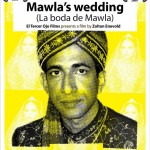 Hoy finaliza el ciclo de cine Los límites de la frontera en colaboración con PhotoIreland. Os ofrecemos dos documentales que no os podéis perder. En Salve Melilla, Carlos Rubiales se convierte, un año más, en el hombre de la Semana Santa. El presentador del programa religioso es el Cruz de guía que la televisión de Melilla pone en antena con motivo de la fiesta religiosa.
Hoy finaliza el ciclo de cine Los límites de la frontera en colaboración con PhotoIreland. Os ofrecemos dos documentales que no os podéis perder. En Salve Melilla, Carlos Rubiales se convierte, un año más, en el hombre de la Semana Santa. El presentador del programa religioso es el Cruz de guía que la televisión de Melilla pone en antena con motivo de la fiesta religiosa.
La boda de Mawla cuenta la historia de Mawla, que es de Bangladesh y vive en Madrid. Tiene trabajo y muchos amigos, pero su sueño es formar una familia. Después de siete años decide volver por primera vez a su país, con el fin de encontrar novia y casarse.
Te esperamos en el Café Literario hoy a las seis.
Today is the last session of the cinema series The limits of the frontiers in cooperation with PhotoIreland. Two documentaries will be shown today.
In Salve Melilla, Easter arrives at Mellilla. Carlos Rubiales becomes, another year, Easter man. He is the presenter of the religious programme Cruz de Guía (Guiding Cross) that Melilla’s Television broadcasts.
La boda de Mawla is about a young man from Bangladesh living inMadrid (Spain). He has a job and plenty of friends but his dream is to have a family. For the first time after seven years he decides to return to his country in search of a bride to get married.
We hope to see you today at 6pm at Café Literario.
Charla | Lecture: El mariachi: cultura popular mexicana, Patrimonio de la Humanidad
¿Quién no ha escuchado a un mariachi? Ya sea en en vivo, en disco, en la radio o en películas, indudablemente la música de mariachi es la más representativa de la música tradicional mexicana, e incuestionablemente parte fundamental de la cultura de México. No hay ninguna otra expresión musical mexicana más difundida en el mundo que la del mariachi.
de mariachi es la más representativa de la música tradicional mexicana, e incuestionablemente parte fundamental de la cultura de México. No hay ninguna otra expresión musical mexicana más difundida en el mundo que la del mariachi.
Originaria del estado de Jalisco, en el occidente de México, la música de mariachi fue distinguida en el 2011 por la UNESCO como patrimonio intangible de la humanidad. Conocedor del tema, el Secretario de Cultura del Gobierno de Jalisco, Jesús Alejandro Cravioto, ofrecerá un panorama sobre el significado del mariachi, compañero de vida de los mexicanos, ya que está siempre presente, desde el bautizo hasta el entierro, como lo describió recientemente en medios periodísticos. Te esperamos hoy en el Café Literario a las seis de la tarde.
Who has not heard a Mariachi? Whether live, on records, on the radio or in the movies, the Mariachi music undoubtedly is the most representative of traditional Mexican music, and unquestionably a fundamental part of the culture of Mexico. No other Mexican musical expression is more widespread in the world than the Mariachi music.
Born in the state of Jalisco, in Western Mexico, the Mariachi music was honored in 2011 by the UNESCO, the United Nations cultural organization, as intangible cultural heritage of mankind. Knowledgeable on the subject, the Secretary of Culture of the Government of the State of Jalisco, Jesus Alejandro Cravioto, will provide an overview of the meaning of the Mariachi, a life partner of Mexicans, “since it is always present, from the baptism to burial,” as he described it recently in the media. We hope to see you today at Café Literario at 6pm.
Film screening | Cine: Día noche + En la línea
Cine documental hoy a las seis en el Café Literario. Os ofrecemos un programa doble con las proyecciones de Día noche y En la línea dentro del ciclo de cine Los límites de la frontera en cooperación con PhotoIreland.
Dia noche ocurre un sábado cualquiera en el sur de California. Adam, un norteamericano de clase media-baja, se despide de su mujer e hijos para acometer su tarea semanal. Un cometido que entraña sacrificios pero que él desempeña con la sólida convicción de sus ideales.
En la línea oscila entre el vértigo que moldea el día y la noche en la capital china seguimos durante un año a un motero danés que sueña con abrir un bar rockabilly a orillas del lago Houhai, a una estudiante del norte del país que deambula entre dos modelos culturales, a un joven de Alaska que se esconde bajo la tierra de Pekín y a un periodista español empeñado en dar con la tecla que desenvuelva el misterio que le rodea. Su cotidianidad nos descubrirá una China corriente y cercana a trasmano del tópico.
Documentary cinema today at 6pm at Café Literario. There will be two films today: Day Night and On the line. They are part of The Limits of the Frontiers series in cooperation with PhotoIreland.
Day Night happens during an ordinary Saturday in Southern California. Adam, an American lower-middle class man, bids farewell to his wife and children to undertake his weekly chore. A task implying sacrifices, but that he accomplishes with the solid conviction of his ideals.
On the line tells the vertigo that shapes day and night in China’s capital, this documentary follows, over a year, the lives of a Danish biker who dreams of opening a rockabilly bar by Houhai Lake, a student from the North wandering between two cultural models, ayoung man from Alaska who hides underground inBeijing, and a Spanish journalist seeking to unravel the mystery that surrounds him. Their everyday lives reveal a China that, contrary to thecliché, is ordinary and close.
Conferencia | Lecture: Xavier Mina y algunos irlandeses más, entre España y México, vía el puerto de Cork
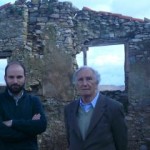 La Embajada de México en colaboración con el Instituto Cervantes te ofrece una interesante conferencia sobre las relaciones históricas entre España, México e Irlanda. El evento es hoy a las seis de la tarde en la Embajada de México, situada en 19 Raglan Rd , Dublín 4.
La Embajada de México en colaboración con el Instituto Cervantes te ofrece una interesante conferencia sobre las relaciones históricas entre España, México e Irlanda. El evento es hoy a las seis de la tarde en la Embajada de México, situada en 19 Raglan Rd , Dublín 4.
Manuel Ortuño Martínez es licenciado en Ciencias Políticas y doctor en Historia de Ámerica por la Universidad Complutense y diplomado en Sociología y Administración Pública por el Instituto de Estudios Políticos. Ha vivido durante dos décadas en México, siendo profesor titular en la Universidad Nacional Autónoma de México y en la Universidad Iberoamericana de la ciudad de México. En México ha publicado Antología de las ideas políticas (1966), Introducción al estudio del turismo (1966), Teoría y práctica de la Lingüística Moderna (1978) así como gran cantidad de ensayos y artículos para periódicos y revistas de España y México.
En los últimos años y alcanzada la jubilación, se ha dedicado a investigar las relaciones España-México a través de la figura de Xavier Mina, militar y guerrillero español que participó en la Guerra de Independencia de México. El fruto de todos estos estudios han sido obras como: Xavier Mina, guerrillero, liberal, insurgente (2000), Xavier Mina. Fronteras de libertad (2003) o Expedición a Nueva España de Xavier Mina (2006).
The Embassy of Mexico in cooperation with Instituto Cervantes offers you today an interesting lecture about the relations between Mexico, Spain and Ireland. The event is today at 6pm at the Embassy of Mexico located in 19 Raglan Rd, Dublin 4. Manuel Ortuño Martínez holds a degree in Political Science and a doctorate in History of America by the Complutense University of Madrid. He also holds a degree in Sociology and Public Administration by the Instituto de Estudios Políticos. He lived in México for ten years where he was professor at the Universidad Nacional Autónoma de México (UNAM) of the city of Mexico. He has published “Antología de las ideas políticas” (1966), “Introducción al estudio del turismo” (1966), “Teoría y práctica de la Lingüística Moderna” (1978) as well as essays and articles for Spanish and Mexican magazines and newspapers.
Following his retirement he has researched the subject of relations between Spain and Mexico through the figure of Xavier Mina during the past few years. Mina was a Spanish army officer and guerilla fighter who took part in the Mexican war of independence. His research has led him to produce work such as: “Xavier Mina, guerrillero, liberal, insurgente” (2000), “Xavier Mina. Fronteras de libertad” (2003) or “Expedición a Nueva España de Xavier Mina” (2006).
Film screening | Cine: Diamond Inside
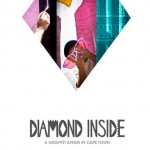 Diamond Inside narra el viaje a CapeTown del colectivo Boa Mistura donde entrarán en contacto con artistas y vecinos de los barrios marginales de la ciudad, como Khayelitsa o Woodstock, con el objetivo de pintar murales que inspiren un cambio en la comunidada través del arte. El documental recala las experiencias personales de varios habitantes que luchan para generar ese cambio entre la población más desfavorecida. Esta es la tercera sesión del ciclo Los límites de la frontera, en cooperación con PhotoIreland. La proyección es hoy a las seis en el Café Literario.
Diamond Inside narra el viaje a CapeTown del colectivo Boa Mistura donde entrarán en contacto con artistas y vecinos de los barrios marginales de la ciudad, como Khayelitsa o Woodstock, con el objetivo de pintar murales que inspiren un cambio en la comunidada través del arte. El documental recala las experiencias personales de varios habitantes que luchan para generar ese cambio entre la población más desfavorecida. Esta es la tercera sesión del ciclo Los límites de la frontera, en cooperación con PhotoIreland. La proyección es hoy a las seis en el Café Literario.
Diamond Inside is the journey of the B oa Mistura collective to Cape Town. On their arrival they will meet artists and people from marginalised neighbourhoods in the city, such as Khayelitsa or Woodstok. Their goal is to draw murals that inspire change through art in the comunity. This documentary recounts personal experiences of various dwellers who struggle to generate that change amongst the most underpriviledged sector of the population. This is the third session of The Limits of Frontierscinema series that has been organized in cooperation with PhotoIreland. The screening is today at 6pm at Café Literario.
oa Mistura collective to Cape Town. On their arrival they will meet artists and people from marginalised neighbourhoods in the city, such as Khayelitsa or Woodstok. Their goal is to draw murals that inspire change through art in the comunity. This documentary recounts personal experiences of various dwellers who struggle to generate that change amongst the most underpriviledged sector of the population. This is the third session of The Limits of Frontierscinema series that has been organized in cooperation with PhotoIreland. The screening is today at 6pm at Café Literario.

